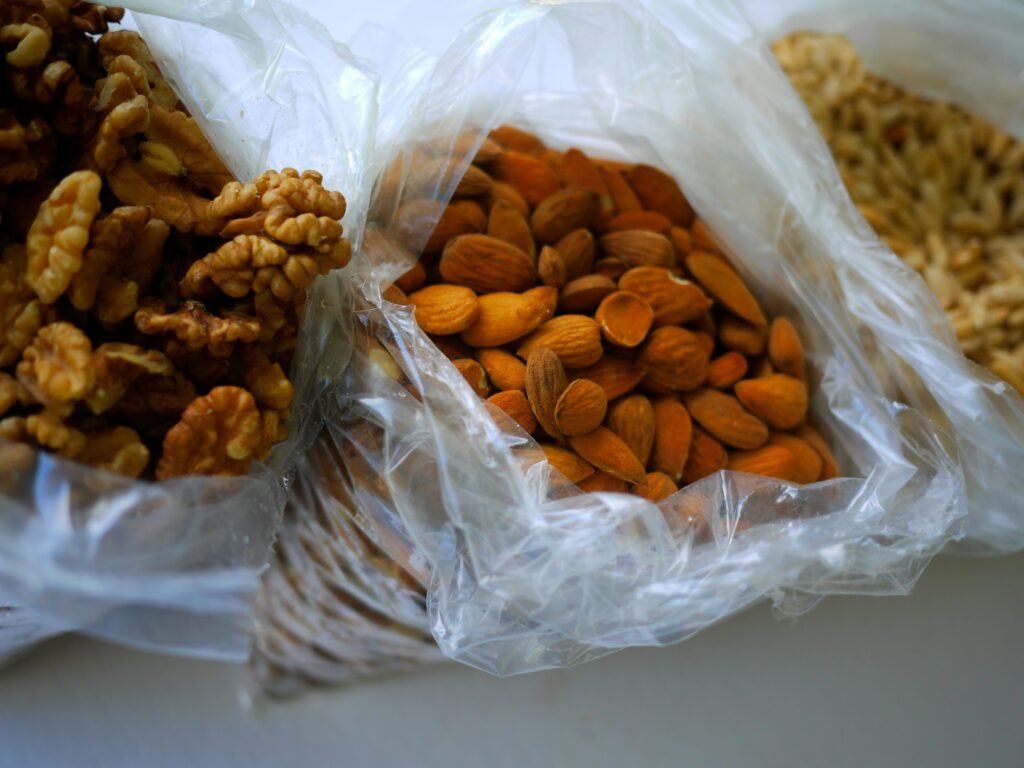
Magnesium, zinc, and vitamins may seem small—but they drive almost everything that keeps your body running. Energy, focus, sleep, recovery, immunity—none of it works properly without them. They’re not “extras” or supplements to a healthy life; they’re the foundation of it.
Why Micronutrients Matter More Than Ever
Modern life burns through nutrients faster than we replace them. Stress, intense work, exercise, lack of sleep, and highly processed foods all drain essential minerals and vitamins.
The result? Fatigue, poor concentration, low immunity, muscle cramps, and hormonal imbalances.
Giving your body what it truly needs builds the base for energy, focus, and resilience.
Magnesium – The Mineral of Calm and Energy
What It Does
Magnesium is involved in over 300 enzymatic reactions in your body—muscle function, nerve signals, energy production, and heart rhythm. It’s the switch between tension and relaxation.
Why You Need It
- Muscle recovery: Prevents cramps, supports regeneration after workouts.
- Nervous system: Calms the body, improves sleep, enhances stress resilience.
- Energy metabolism: Essential for ATP production—the body’s fuel.
- Heart health: Helps regulate blood pressure and cardiac rhythm.
Where to Find It
- Nuts (almonds, cashews)
- Whole grains
- Green vegetables (spinach, broccoli)
- Mineral water rich in magnesium
Daily need: around 300–400 mg (higher with stress or training).
Zinc – The Trace Element for Immunity and Hormones
What It Does
Zinc participates in over 200 enzymatic processes, supporting immune defense, cell growth, hormone production, and wound healing. It’s your body’s quiet guardian.
Why You Need It
- Immune strength: Activates defense cells and helps prevent infections.
- Skin & hair health: Promotes healing and collagen production.
- Hormonal balance: Supports testosterone and fertility.
- Mental clarity: Helps neurotransmitter function for focus and cognition.
Where to Find It
- Meat, fish, and eggs
- Legumes (chickpeas, lentils)
- Oats, nuts, and seeds (especially pumpkin seeds!)
Daily need: 10–15 mg (more for athletes or vegetarians).
Vitamins – The Control Center of Your Metabolism
Vitamins don’t work alone—they cooperate. Together they regulate energy, immune function, cell repair, and mood balance.
Key Players
Vitamin D – The Sunshine Vitamin
- Regulates calcium absorption → stronger bones
- Boosts immune system and mood
- Commonly deficient in winter
Tip: 15–30 minutes of sunlight daily or supplement after testing levels.
Vitamin C – The Defense & Recovery Vitamin
- Powerful antioxidant: protects cells from oxidative stress
- Aids wound healing and iron absorption
- Lowers stress hormone levels
Sources: Berries, citrus fruits, peppers, broccoli.
Vitamin B Complex – Energy & Nerve Support
- B1, B2, B6, and B12 convert food into energy.
- Support brain, nerves, and red blood cell production.
Sources: Whole grains, eggs, legumes, dairy, and meat.
Vitamins A & E – Cell Protection & Skin Health
- A: strengthens vision and immune defense.
- E: protects cells from free radicals.
Sources: Carrots, spinach, nuts, and plant oils.
The Synergy: Balance Beats Isolation
Micronutrients don’t act solo—they’re a team. A deficiency in one can disrupt the others.
Examples:
- Magnesium supports vitamin D activation.
- Zinc affects vitamin A metabolism.
- Vitamin C enhances iron absorption.
The key: diversity over dosage. A balanced diet rich in vegetables, legumes, nuts, and whole grains provides natural synergy.
When Supplementation Makes Sense
- High stress or heavy training
- Winter months (Vitamin D)
- Vegan or restricted diets
- Clinically verified deficiencies
Important: Don’t supplement blindly. Test, measure, and tailor.
The Result: Stronger Body, Sharper Mind
Magnesium relaxes, zinc strengthens, vitamins regulate.
Together, they keep your body and mind balanced.
When your micronutrient levels are optimized, you’ll feel it:
more energy, better sleep, stronger immunity, improved recovery, and clearer focus.
Call-to-Action: Build Your Micronutrient Routine
This week, start small:
- Eat at least 2 servings of vegetables and 2 of fruit per day.
- Add a handful of nuts or seeds daily.
- Drink magnesium-rich mineral water or supplement mindfully.
- Get 15 minutes of sunlight or take Vitamin D in darker months.
After two weeks, you’ll notice: your body isn’t just running—it’s performing better.
